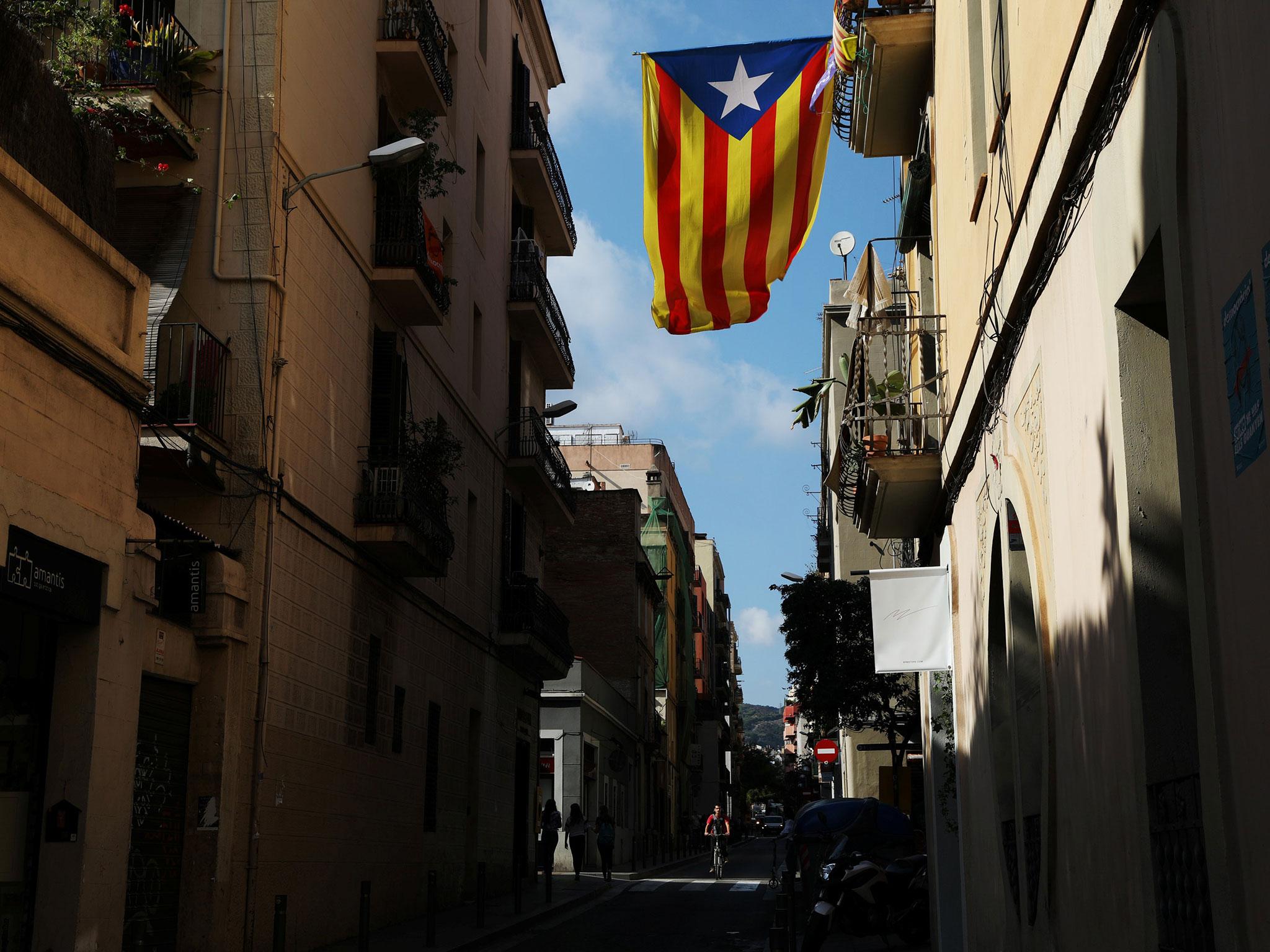Spain to display show of unity in Madrid with biggest National Day celebrations for years
Spain's request for clarification from Catalonia is actually a big step towards taking away the region's powers

Spain celebrates its National Day on Thursday with its traditional series of military parades. As he watches the troops march by, Premier Mariano Rajoy – who took a small but significant step towards direct intervention by Madrid in Catalonia on Wednesday – could well be forgiven for wondering where the country’s biggest political crisis in decades is now heading.
On Wednesday the normally cautious Mr Rajoy himself reacted swiftly to regional Premier Carles Puigdemont’s declaration of independence for Catalonia on Tuesday evening. Independence which, confusingly, was suspended in the same speech a mere six seconds later.
Mr Rajoy called an emergency meeting of his cabinet ministers at 9am sharp on Wednesday and did not even wait to address parliament in the afternoon to announce the first, key, legal steps his government would now take towards possible direct intervention in Catalonia by Madrid.
As is required by Spanish legislation before article 155 of the country’s constitution - which allows the state to take control of Catalonia’s internal affairs – can take effect, Mr Rajoy said he would be sending a request to Mr Puigdemont to confirm if he had indeed, declared independence.
Mr Rajoy set a deadline of Monday 16 October for Catalonia to respond to the request. “This call seeks to offer citizens the clarity and security that a question of such importance requires,” Mr Rajoy added, who also later rejected Mr Puigdemont’s latest request for more negotiations, whilst accusing him of “sowing confusion”.
His decision to move towards the unprecedented application of article 155 may well fuel fears of civil strife in Catalonia, but there is a much broader degree of support for his actions in the rest of Spain.
Spain’s fourth largest party, Ciudadanos, has been pushing for article 155 to be applied for several days, but more importantly Mr Rajoy has now gained the backing of Spain’s main opposition party leader, Socialist Pedro Sánchez. “We also need Mr Puigdemont to make it clear, in no uncertain terms, what happened in parliament yesterday,” Mr Sanchez insisted.
Mr Sánchez appears to have extracted an agreement from Mr Rajoy to form a commission on changing Spain’s Constitution in return. But the six months involved in putting that commission in motion, and Mr Sánchez immediate rejection of the possibility of any reformed legislation allowing for a binding referendum on self-determination – as the Catalans have demanded – make it unlikely to have any impact on Spain’s current political crisis.
Mainstream Spain’s top two political figures are not the only ones seemingly uncertain as to the exact meaning of Mr. Puigdemont’s rambling, half-hour speech to Catalan parliament on Tuesday evening.
In Catalonia, Mr Puigdemont’s declaration of independence followed by its instant suspension was greeted with a mixture of boos and stony silence by the 30,000 or so pro-secession supporters outside Parliament on Wednesday, as well as no small degree of incomprehension.
As one well-placed source in the Catalan nationalist camp told The Independent on Wednesday, “Firstly it was a pretty flat speech, with no real sense of epic or drama. It was like somebody was reading a mortgage agreement, not declaring a new state had been born.”
“But what it’s really provoked is a widespread sense of confusion, because right now no-one has all the pieces in the puzzle to know what’s going on inside the Catalan govern and people aren’t reacting as you’d expect, either.”
“Not even the CUP” – the radical left-wing party that are the most hard-line independentistas of Mr Puigdemont’s allies – “seemed to be as disappointed by the lack of a clear declaration as they might have been. It’s like they know something the rest of us don’t.”
There is speculation that the Mr Puigdemont’s future response to Madrid’s demands for clarification on independence will be couched in deliberately vague terms. This would both deflect accusations that the nationalists are responsible for a possible implementation of article 155, and maintain their image as the weaker, picked-on, side in any ongoing appeals for international mediation.
Meanwhile – and it is hard not to see an indirect link to the Catalan separatist threat - grassroots Spain seems to be building up for its national holiday, which coincides with Armed Forces Day, with more enthusiasm than other years. In recent weeks, just like during a soccer World Cup, the sight of larger Spanish flags hanging the balconies of flats in cities and towns across the country has become a much more familiar one.
Although representatives of Spain’s Armed Forces have flatly denied any connection with ongoing political events, this year the military marches have been extended in size in Madrid, and will, for the first time in seven years, be held in one of the city’s most emblematic avenues, the Paseo de la Castellana. For the first time in over 30 years, too, units from Spain’s national police are expected to take part in the processions.
However, it almost goes without saying that Catalonia’s regional premier, already missing from last year’s rainsoaked celebrations in Madrid, will not be present in the VIPs tribunal today, either.
Subscribe to Independent Premium to bookmark this article
Want to bookmark your favourite articles and stories to read or reference later? Start your Independent Premium subscription today.

Join our commenting forum
Join thought-provoking conversations, follow other Independent readers and see their replies